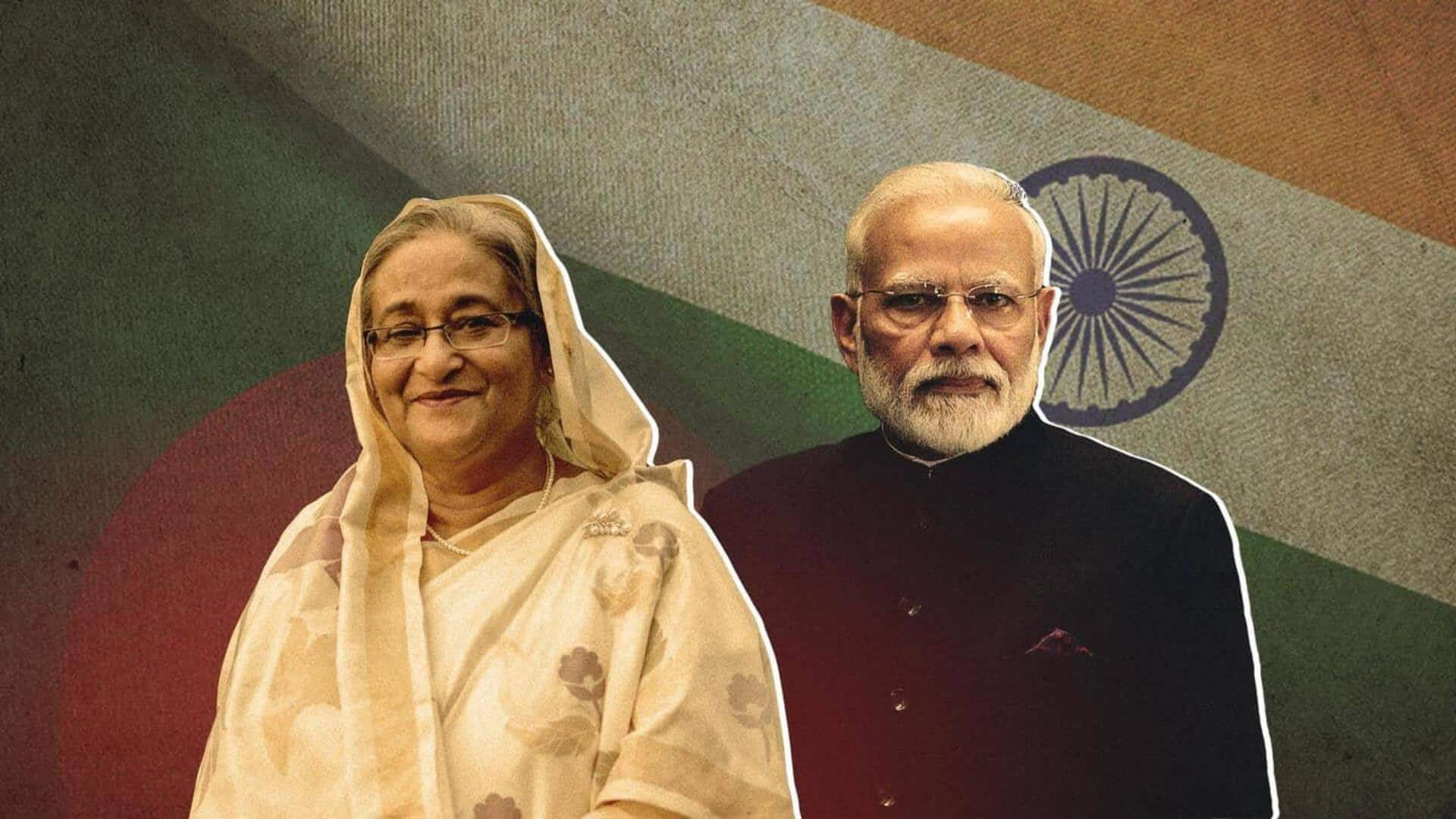
Why elections in Bangladesh are important to India
What's the story
India is watching closely as Bangladesh gears up to hold general elections on Sunday. Besides a 4,100-kilometer border, the two countries share strong historical, cultural, and economic relations. Experts believe a secure, successful, and friendly Bangladesh is in India's best interest, which is why India strongly supports incumbent Prime Minister Sheikh Hasina. Despite internal opposition, she is regarded as one of India's closest allies, as she has helped establish a cordial and mutually beneficial relationship between the two nations.
Context
Why does this story matter?
Hasina is seeking her fourth consecutive and fifth overall term, and with the main opposition party—the Bangladesh National Party (BNP)—boycotting the election, her victory seems likely. India sees Bangladesh as a strategic partner and key ally for the security of its seven northeastern states. The BNP has accused New Delhi of interfering in Bangladesh's polls and openly lobbying for Hasina. It also termed it a "dummy election." India's Ministry of External Affairs has yet to comment on the BNP's allegations.
Details
Opposition criticizes India's support for Hasina
The BNP opted out of the election following Hasina's refusal to accept the party's demands for a neutral caretaker government to conduct the polls. It accused the ruling Bangladesh Awami League of intimidation, voter suppression, and vote-rigging. Senior BNP leader Ruhul Kabir Rizvi told the BBC, "India should support the people of Bangladesh and not a particular party. Unfortunately, Indian policymakers don't want democracy in Bangladesh." He also accused India of "alienating the people of Bangladesh" by openly supporting Hasina.
What Next?
India's concerns over Islamist regrouping
Some analysts claimed India's support for Hasina came from an apprehension that the return of the BNP and Jamaat-e-Islami party could lead to the resurgence of Islamist groups in Bangladesh, as what happened between 2001 and 2006. Former Indian High Commissioner in Dhaka Pinak Ranjan Chakravarty alleged the BNP-Jamaat coalition gave rise to many jihadi groups. In 2004, Hasina survived an assassination bid by them. The same year, 10 trucks full of arms from Pakistan meant for extremists were caught.
Insights
India-Bangladesh relations, strategic interests
The two countries share close cultural, linguistic, and economic ties. Since 2010, India has offered over $7 billion in line of credit to Bangladesh for infrastructure and development projects. However, their relationship faced challenges, such as disputes over water resources and accusations of interference in each other's internal affairs. India has other reasons to have friendly relations. It seeks road and river transport access for its northeastern states through Bangladesh. They hold strategic importance in any potential conflict with China.
China
China's involvement raises concerns
Meanwhile, China, Bangladesh's main source of foreign direct investment (FDI), presents substantial hurdles to India-Bangladesh relations. Although Beijing's relations with New Delhi are strained, it is involved in significant infrastructure projects in Bangladesh. It has also granted duty-free access to 98% of Bangladeshi products, including vegetables, frozen and live seafood, leather, textiles, and clothing items. More importantly, China is a major supplier of military equipment to Bangladesh. Since 2010, it has supplied more than two-thirds of Bangladesh's weaponry imports.
Facts
Challenges in reaching out to Bangladeshis
Despite the close relationship between the two governments, some Bangladeshis are wary of India. Rights groups claim that since India's right-wing Bharatiya Janata Party (BJP) came to power in 2014, discrimination against religious minorities, especially Muslims, has increased, an allegation the BJP denies. "The maltreatment of Indian Muslims creates a high potential possibility of maltreatment of the Hindu minorities in Bangladesh," claimed Debapriya Bhattacharya, a fellow at the Centre for Policy Dialogue in Dhaka.